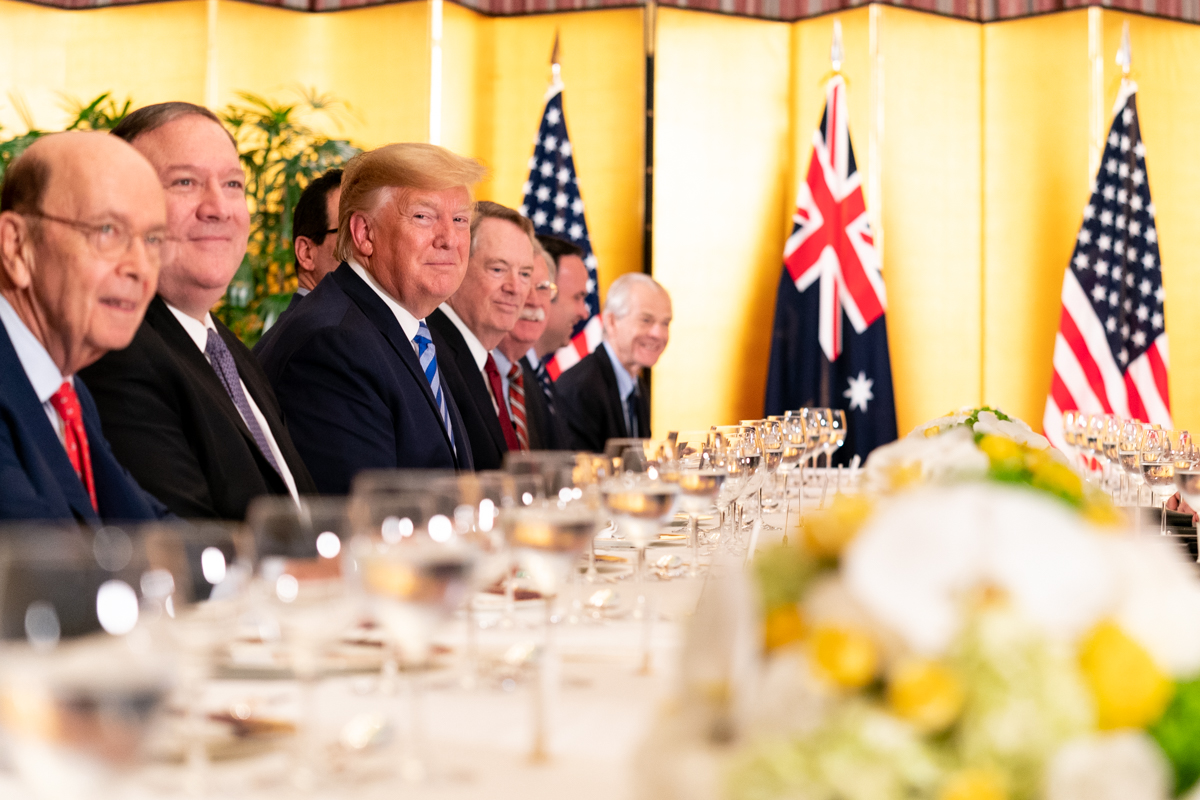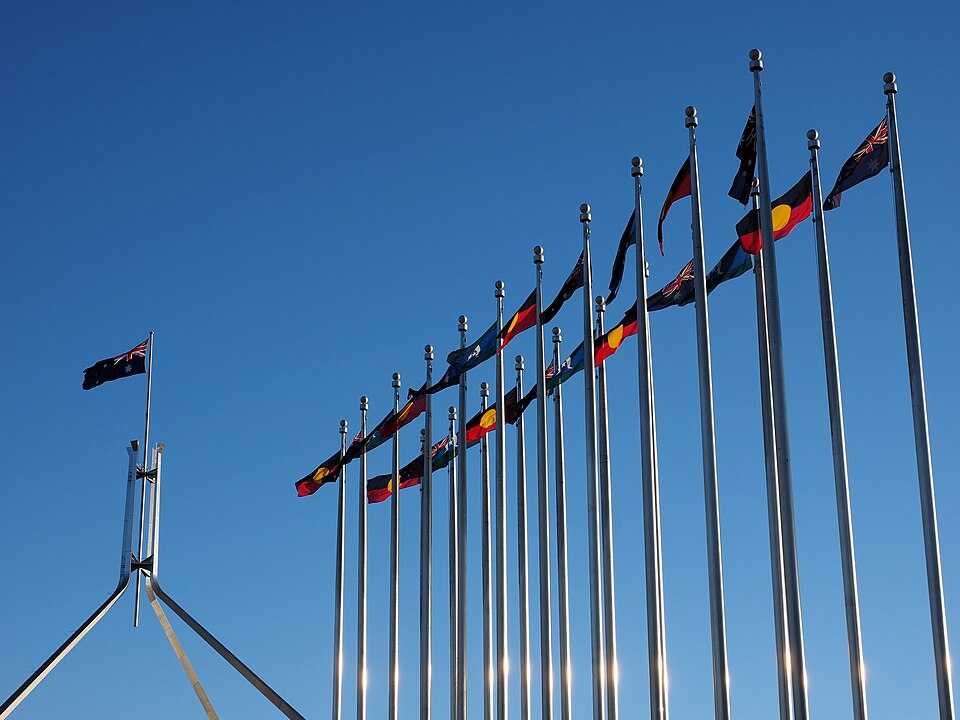Australia has long relied on US-led multilateralism, but that era is being challenged. To protect its interests in a fracturing global order, Canberra must act now to step forward with like-minded partners and champion the institutions that sustain peace and prosperity
Since returning to office in January 2025, President Donald Trump has once again challenged the rules-based order. He has refused to contribute to the World Trade Organisation (WTO), attacked the global climate regime, withdrawn from the United Nations Human Rights Council (UNHRC), and announced his intent to withdraw from the World Health Organisation (WHO). As a result, multilateral cooperation is in crisis. In the face of increasingly unpredictable US foreign policy, Australia, as a middle power and accomplished multilateralist, should assume greater leadership to underwrite global peace and security.
Australia has long relied upon US leadership in multilateral forums. The United States has leveraged its soft power and economic influence to promote democracy, free trade, and maritime law. In doing so, Australia has reaped the benefits of a strong, rules-based multilateral order that protects its trade interests and upholds regional stability. Under Trump 2.0, however, the functionality of international organisations is weakened.
For instance, in August, the US announced it would no longer participate in the Universal Periodic Review, the UNHRC’s signature human rights process. Although the effectiveness of the UNHRC can be questioned, as is evident in repeated human rights abuses that go unaddressed, the absence of US leadership further undermines the credibility of the institution as it struggles to mobilise resources and enforce human rights norms. Similarly, Trump’s withdrawal from the Paris Agreement does not bode well for the future of multilateralism, particularly on issues such as climate change that require collective action.
Moreover, while the US is the most significant contributor to the UN budget, it is also currently its biggest debtor, owing nearly US$2.8 billion. Current arrears greatly affect the UN’s ability to function effectively. Similarly, Washington’s refusal to appoint appellate judges to the WTO’s dispute settlement body has sidelined the mechanism and undermined the enforcement of international trade rules.
Certainly, challenges to the prevailing rules-based order for trade and international cooperation predate, and extend beyond, the Trump administration. The People’s Republic of China (PRC), for instance, adopts an increasingly assertive approach to the prevailing order, creating alternative frameworks and advancing new rules. This includes the establishment of new development initiatives like the Belt and Road Initiative (BRI), which has signed agreements with over 140 countries; the Asian Infrastructure Investment Bank (AIIB), which has amassed 110 approved members to date; and the New Development Bank under the BRICS countries alongside Brazil, Russia, India, and South Africa.
President Xi Jinping’s BRI model has been criticised for expanding the PRC’s strategic influence by burdening smaller countries such as Sri Lanka and Laos with debt. Meanwhile, international maritime law is being challenged by the People’s Liberation Army Navy’s assertive actions in the South China Sea, including the construction of artificial islands.
Additionally, political and economic forums such as the Shanghai Cooperation Organisation (SCO) are important avenues through which the PRC seeks to exert influence, primarily through trade and energy cooperation with Central Asian states, including Kazakhstan. China has significantly increased bilateral trade with Central Asian states, making it the largest trading partner for Tajikistan and Kazakhstan. On the other hand, as Australia lacks influence in PRC-led forums like the AIIB and SCO, it faces a strategic challenge as the PRC’s principles for multilateral engagement, centred on non-interference and sovereignty, stand in contrast with Australia’s own values and interests.
The confluence of systemic challenges to existing institutional mechanisms and the risk of US absence necessitates that Australia rethink its priorities. US withdrawal from or reduced resourcing of multilateral organisations demands that Australia exercise greater leadership to ensure the survival of institutions in its interests. Altogether, Australia can best navigate US-China strategic competition by promoting multilateral cooperation with hedging states and middle powers such as South Korea, India and Indonesia. A starting point should be developing new minilateral partnerships, while also strengthening existing ones such as the Quad, which can serve as building blocks for Australia to advance its priorities within broader multilateral frameworks.
Firstly, Australia needs to deepen its engagement with groupings comprising other Indo-Pacific middle powers, such as the Association of Southeast Asian Nations (ASEAN) and the MIKTA coalition (comprising Mexico, Indonesia, South Korea, Turkey, and Australia). To step out of the shadow of the United States, the Australian government should independently pursue its strategic interests and leverage the full array of regional groupings to advance them rather than defaulting to US-led bodies. While Australia plays a leadership role in regional security and trade, it could develop more initiatives that promote skills sharing and technical capacity among middle powers, thereby reducing its reliance on US-led frameworks.
This is especially important in areas where Australian interests may diverge from US priorities. For example, the Trump administration’s hostility to international climate action should not prevent Australia from expanding its climate resilience efforts in collaboration with Pacific Island countries. Similarly, Australia can lead initiatives by building on its public health expertise and strengthening pandemic preparedness through the use of platforms like the East Asia Summit.
Secondly, to buoy the current rules-based order, Australia must continue to advance values-based partnerships on democracy and human rights. Australia took a step in this direction in September 2024, when it launched a Ministerial Group, along with Japan, Colombia, Indonesia, and others, to address the challenges faced by humanitarian personnel on the frontline of conflicts. Australia must embrace such initiatives to strengthen cross-regional partnerships to uphold the rules-based order and international law. At a time when the efficacy of global collective action is being contested, Australia should assume a leadership role and demonstrate its continued commitment to addressing transnational challenges through co-operation.
By asserting its leadership in multilateral engagements, Australia would benefit from engaging in strategic hedging by reducing its dependence on any single power and expanding its influence across other actors. Deepening its engagements with groupings like ASEAN can empower Australia as a middle power, allowing it greater agency, while also offering cost-effective engagement opportunities as compared to bilateral outreach. This is because, through minilateral engagements, Australia can coordinate multiple partners simultaneously, thereby avoiding the resource-intensive nature of bilateral relations.
Importantly, while Australia should pursue its priorities independently of the United States, it must continue to encourage US involvement in key regional institutions, particularly the Pacific Islands Forum (PIF). Australia should continue to use the Australia-United States Ministerial Consultations (AUSMIN) forum to encourage sustained US engagement and explore opportunities to deepen people-to-people ties, as well as advance climate action in the Pacific Islands.
From an economic perspective, Australia would benefit from pursuing trade-focused minilateral engagements to strengthen financial security. As an export-dependent economy, Australia must redouble its efforts in trade minilateralism, both within existing mechanisms like the Supply Chain Resilience Initiative (SCRI) with India and Japan, as well as creating new spaces for minilateral cooperation focused on economic security, resilience, and regional stability with key trading partners including South Korea, New Zealand and Thailand.
Even as geopolitical dynamics shift, multilateralism will remain a keystone of Australia’s approach to pursuing its national interests and supporting its partners. To enhance its influence, Australia must be prepared to act more independently by promoting its vision in partnership with like-minded countries and setting the agenda in key strategic groupings, such as the PIF. In our fragmented global order, Australia needs to invest in leadership in partnerships such as the SCRI and the Quad, or risk them falling into disrepair.
Sameera Pillai is pursuing a Master’s degree in International Relations at the University of Sydney, specialising in American Foreign Policy and International Law. She holds a Bachelor of Communications and Journalism from UNSW, and previously interned with AIIA NSW. Currently, she serves as the Vice President of the Postgraduate Organisation for Political & Social Sciences at university and works in Communications for a Sydney-based law firm.
This article is published under a Creative Commons License and may be republished with attribution.




